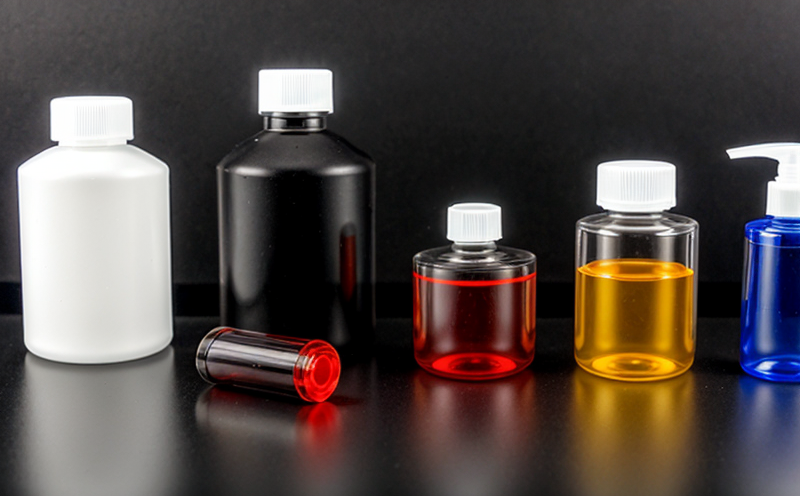EN 1186 Migration Testing of Nano Additives in Food Contact Plastics
The European standard EN 1186 is a crucial document that addresses the migration of substances from packaging materials into foodstuffs. This testing ensures that nano additives used in plastics and polymers do not pose any health or safety risks when they come into contact with food. The significance of this test lies in its ability to prevent potential contamination, which could lead to harmful effects on human health.
The migration process from materials like polyethylene terephthalate (PET), high-density polyethylene (HDPE), and polystyrene can be influenced by the presence of nano additives. These nanomaterials are often used for enhancing mechanical properties, improving barrier performance, or imparting other functional benefits to plastics. However, their use must be carefully regulated to ensure they do not migrate into food products.
The testing procedure outlined in EN 1186 involves placing the plastic specimen in a solution that simulates the conditions of contact with foodstuffs. The solution is typically composed of water or other relevant liquids and is heated at specific temperatures over defined periods. This allows for the migration of any potentially harmful substances to be detected.
Once the testing period has concluded, the extracted solutions are analyzed using various analytical techniques such as gas chromatography-mass spectrometry (GC-MS), liquid chromatography-tandem mass spectrometry (LC-MS/MS), or Fourier transform infrared spectroscopy (FTIR). These methods provide precise quantification and identification of any migrated compounds.
The acceptance criteria for EN 1186 are stringent, ensuring that the migration levels of substances from nano additives do not exceed the limits set by international standards such as ISO and EU regulations. Compliance with these limits is critical to maintaining food safety and consumer confidence.
For R&D engineers working on the development of new food contact plastics, this testing ensures that their innovations are safe for use in real-world applications. Quality managers can rely on EN 1186 results to make informed decisions about product safety, while compliance officers ensure regulatory requirements are met. Procurement teams can also benefit from understanding these tests as they relate to the sourcing of compliant materials.
The testing process is not only important for ensuring food safety but also for maintaining brand reputation and consumer trust. In an era where public health concerns are paramount, adhering to standards like EN 1186 demonstrates a commitment to responsible product development.
Why It Matters
The importance of migrating from nano additives in plastics cannot be overstated. This testing not only ensures that the food packaging materials used are safe but also sets a benchmark for innovation within the sector. By adhering to EN 1186, manufacturers can avoid costly recalls and potential legal issues associated with unsafe products.
- Ensures compliance with international standards
- Prevents contamination of foodstuffs
- Promotes consumer trust in brands
- Avoids negative publicity and brand damage
The results of this testing are critical for quality managers, compliance officers, and R&D engineers. They provide a clear picture of the safety profile of nano additives used in plastics, allowing for informed decision-making.
Customer Impact and Satisfaction
- Informed Decision-Making: Compliance with EN 1186 helps customers make informed choices about their suppliers and products. They can trust that the materials used in food packaging are safe, thereby enhancing brand reputation.
- Enhanced Consumer Confidence: By ensuring that nano additives do not migrate into foodstuffs, this testing significantly enhances consumer confidence in the safety of packaged foods.
- Avoidance of Regulatory Issues: Customers can avoid potential legal and regulatory issues by ensuring compliance with international standards.
The results of EN 1186 migration testing are invaluable to customers looking for reliable and safe materials. They provide peace of mind, knowing that the products they use meet stringent safety requirements.
Environmental and Sustainability Contributions
In addition to ensuring food safety, EN 1186 migration testing also contributes positively to environmental sustainability efforts. By preventing harmful substances from migrating into foodstuffs, this testing helps reduce the need for reprocessing or replacement of packaging materials.
- Reduction in Waste: Ensuring that nano additives do not migrate reduces the likelihood of contamination, thereby minimizing waste generation and disposal costs.
- Sustainable Material Usage: By promoting the use of safe materials, this testing encourages a more sustainable approach to material selection and usage in food packaging.
The positive impact on the environment is another reason why compliance with EN 1186 is essential for manufacturers. It helps them contribute to broader sustainability goals while ensuring product safety.





